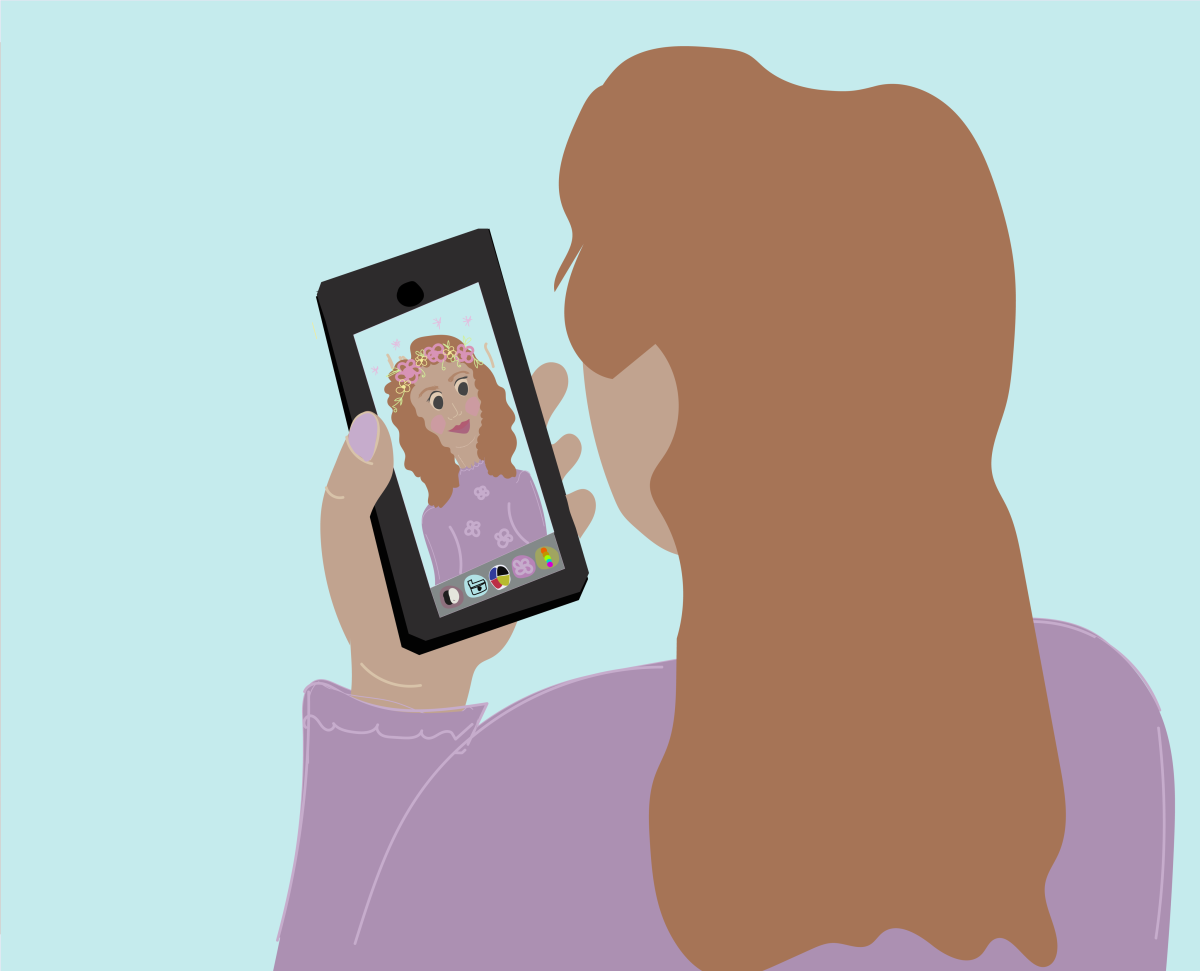Thanks to technological advances, we live in a world where a plethora of ways exist to alter and edit an image. Whether it’s adding a filter preset on a photo or smoothening our skin with an Instagram Story effect, there’s a variety of options available to enhance our appearance online.
Over 1.2 million social media filters exist, and even more continue to be created. While the use of filters seems to be a worldwide phenomenon, actually admitting to using them seems to be a taboo subject.
We need to establish better dialogue and openness when it comes to using filters on social media. In doing so, we can create a safe space for individuals to share disclaimers in their post when using a filter. This form of transparency opens the door to take down unrealistic perceptions and unachievable desires of how people look.
Whether people add filters to their images or not, there should be no shame in doing so. One of the reasons why people opt for filters is to adjust the distortion that can come from using a camera.
Rodolfo Gonzalez, a photojournalism professor, who has over 30 years of photography experience, said objects, hands and facial features can look larger as they come closer to a wide-angle lens.
“Depending on the millimeter size of the lens, it can distort how objects appear in images. If you have a wide-angle lens, for example, and it’s very close to a subject, that subject can become distorted in a way that’s angular or protrusive,” Gonzalez said.
The iPhone camera warps the face and creates distortion from distance between the camera and the subject, often making people’s noses appear larger in selfies. For people who experience facial dysmorphia or live with insecurities, this kind of alteration can be a nightmare and they might end up using a filter.
Insecurities can play a large role in one’s reasoning behind using a filter. We should not shame others who use filters because of their lack of confidence in how they look. However, we need to be honest when we use them in order to stop the growing phenomenon of people feeling less than when not meeting high and unachievable standards found on social media.
Filters aren’t new and they are not an idea that evolved in the 21st century. Back in the 1950s, Hollywood production studios would slather Vaseline on camera lenses to achieve a dreamy aesthetic and create a soft filter-like effect of smooth skin which was known as a “glamour shoot.”
Today, the average iPhone camera is embedded with around 10 filters. Depending on which model version, there are around 10 options for different types of filters such as vivid, mono and noir. Additionally, Canon offers a range of colored camera lens attachments or filters for each type of lens. These lenses have a variety of uses from fixing light and chromatic aberrations to de-hazing and UV filters.
According to Gonzalez, technology has been advancing faster than most photographers can keep up with. First, the transition was from film to digital, then digital improved with sensors, additional pixels and better software.
“Now, the technology is evolving into the computer programs using photoshop and Lightroom. All these filters that can create mood, color, tone and change textures in complexions of people’s faces using AI programs,” Gonzalez said.
AI programs within the editing software are used by many people, photographer or not, and is advancing constantly. People can change the appearance of their age, their facial expressions or the color of their hair.
Using such programs without adding a disclaimer that a filter was used can be harmful. When people alter their appearance to make themselves, older, younger or even a different gender, it can be considered catfishing, especially on dating apps and websites. It may sound scary, but being honest about these kinds of changes opens the door for the use of filters to be seen as perfectly alright.
With an enormous library of editing apps, it’s no wonder that 71% of people alter their photos with filters before posting online or that 90% of women edit their photos with a filter before posting. So many use filters to some degree, so why not just help spread positivity and less toxicity into society by helping to be honest about it.
Overall, honesty is the best policy when using filters or altering images for social media. We all can feel self-conscious when we see people who look “perfect” to us. Especially if someone is promoting a makeup or skin product that promises to make your skin better. Simply adding a disclaimer that a filter was used in the post’s caption or through a hashtag can easily pave the way to a more transparent and healthy social media experience.
Shreya Vijay, a psychology freshman, doesn’t take many photos or use filters, but believes more openness from companies, brands and celebrities in filter uses will lead to less toxicity for people who do use filters.
“We need more diversity, if they keep catering to one standard, it’s going to grow more insecurities in people,” Vijay said.
Although there should be no shame in using a filter to smooth up skin texture, it’s also completely fine to embrace imperfections on the skin. Whether that be from freckles, beauty marks, birth marks or skin conditions like vitiligo all skin is beautiful, with or without a filter.
This subject is not black or white. I’m not either pro filter or pro no filter, but there’s this grey area that meets in the middle of those ideas where the person using the filter gets to decide how they want to be seen. Sometimes I will use a beauty cam to distort my face back to its normal self, but this can also be a creative choice like adding grain or blurriness to give it a more vintage look.
Everyone wants to look good and put their best self on display. Just know that most images and videos do have a skin or beauty filter to some degree, and we must realize that it’s okay and acceptable.
– McKenna Bailey is a digital media innovation senior
The University Star welcomes Letters to the Editor from its readers. All submissions are reviewed and considered by the Editor-in-Chief and Opinion Editor for publication. Not all letters are guaranteed for publication.
Opinion: We should be honest when using photo filters
Mckenna Bailey, Opinion Contributor
February 18, 2022
0
Donate to The University Star
Your donation will support the student journalists of Texas State University. Your contribution will allow us to purchase equipment and cover our annual website hosting costs.
More to Discover














